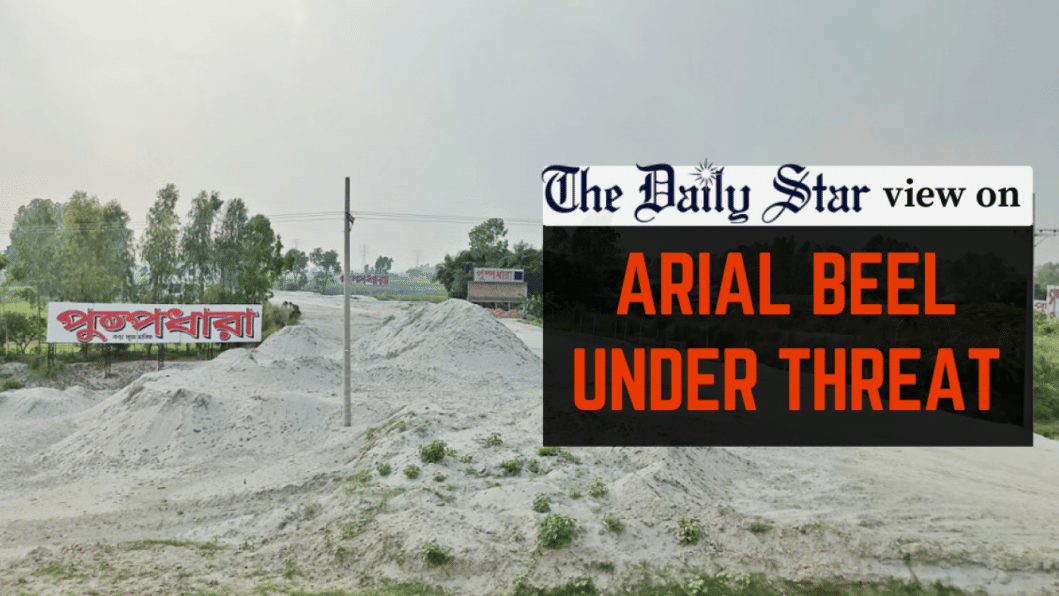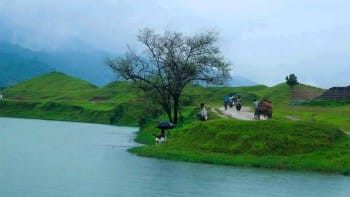Save Arial Beel from real estate sharks

It is extremely disappointing to know that Arial Beel, one of the country's largest wetlands located in Munshiganj, stands on the brink of a devastating transformation. One may recall that over a decade ago, the residents of Arial Beel united to protect their ancestral lands from an ill-conceived airport project of the government. Their determination and community solidarity also paid off, forcing the government to abandon its plan. However, this triumph is now overshadowed by a new threat that looms over the beel – illegal real estate development.
According to a report by this daily, the very farmers who once valiantly defended their territory are now yielding to the lure of higher profits, thus becoming "pawns in a sinister game of environmental degradation". Exploiting their financial vulnerabilities and a surge in land prices following the opening of the Padma Bridge, unscrupulous real estate companies have acquired portions of the wetland, filling them up with sand and promoting residential development through strategically placed signboards. This is a clear violation of multiple environmental laws that prohibit any filling or altering of government-recognised reservoirs, including the Natural Water Reservoir Conservation Act 2000, the Bangladesh Environment Conservation Act 1995, and the Bangladesh Water Act 2013.
It goes without saying that the consequences of this will be devastating and far-reaching. We cannot stress enough the importance of wetlands like Arial Beel, whose natural water storage capacity plays a crucial role in absorbing excess water during heavy rainfall or storms, mitigating the risk of flooding in nearby areas. But thanks to the unchecked encroachment by real estate sharks, its once-thriving ecosystem is at risk. Already, loss of land fertility due to the obstruction of water entry as well as a decline in fish production have been reported. However, the exact extent of damage suffered by the wetland remains unclear, due to the lack of accurate data, which also shows the lack of concern by the relevant authorities.
This is deeply alarming. The responsibility to safeguard Arial Beel falls squarely on the Department of Environment (DoE), but also on the local administration and other relevant agencies, who, unfortunately, are turning a blind eye to the ongoing degradation. It is largely because of their inaction that we have already reached an overall critical stage, with a recent study revealing that the rate of wetland filling in the country has increased significantly over the past eight years. We must not allow this trend to continue. The authorities must take immediate action to halt further destruction of our beels and haors in the name of development. Failure to do so will not only have catastrophic consequences for the present generation but also for all the generations to come.


 For all latest news, follow The Daily Star's Google News channel.
For all latest news, follow The Daily Star's Google News channel. 









Comments